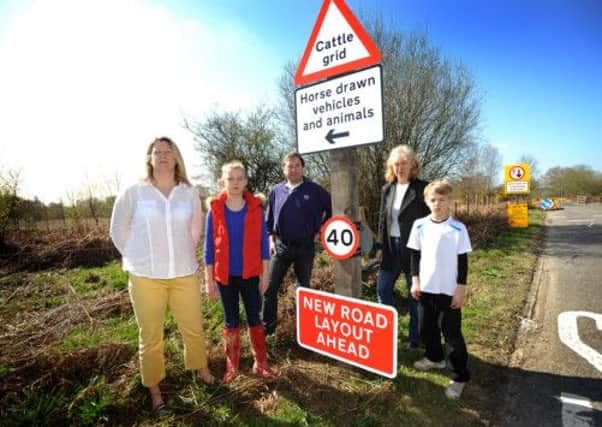£10,000 ‘waste’on oak posts


East Sussex County Council works, which began on roads at Chailey Common on Monday, are to replace wooden posts bearing speed limit signs in North Common Road and Beggars Wood Road.
The oak posts were erected to replace metal posts after the speed limit was reduced to 40mph when cattle grids were installed as part of the fencing and grazing scheme on the Common. The oak posts currently being ripped out will be replaced by metal posts again.
Advertisement
Hide AdAdvertisement
Hide AdSara Vesey-Holt, who lives at Phantom Ranch off North Common Road, said: “It’s a disgraceful waste of money. A county council official told me they had a safety audit last year and they found it wasn’t safe for the wooden posts to remain because they were too solid.
“The wooden posts are cemented in and they have had to use heavy lifting gear to remove them.”
In another example of what fellow resident Kate Jenkins describes as “squandering money”, the council has had to put in temporary chicanes to dampen the noise from the cattle grids.
Kate, from Romany Ridge, who has likened the sound of 6,000 cars clunking over the cattle grids to “a pounding oil rig” said: “What’s happened with these posts is scandalous after we have been told it will cost in excess of £60,000 to make the chicanes permanent.”
Advertisement
Hide AdAdvertisement
Hide AdSara’s husband, Philip Vesey-Holt asked: “What does this say about their procurement process? If they are so bad at specifying their own regulations over traffic posts, no wonder the grids are so bad.”
The county council, which is making more than £60million in cuts over three years, said in a statement: “After a safety audit was carried out, it was felt that due to the proximity of these posts to the point where the speed limit changes, concerns over the speed of approaching vehicles meant it was appropriate to install metal posts of a higher safety specification.
“It is not unusual for issues such as this to come to light during an audit carried out after a scheme is installed, and the safety of road users has to be paramount.”
A council spokesman confirmed: “The scheme is likely to cost around £10,000,” but he insisted: “The cost of the scheme will come from funding obtained from Natural England so the taxpayer will not pay a penny.
“This work has to be seen in the context of the fencing and grazing scheme, which is vital to preserving the historic common.”